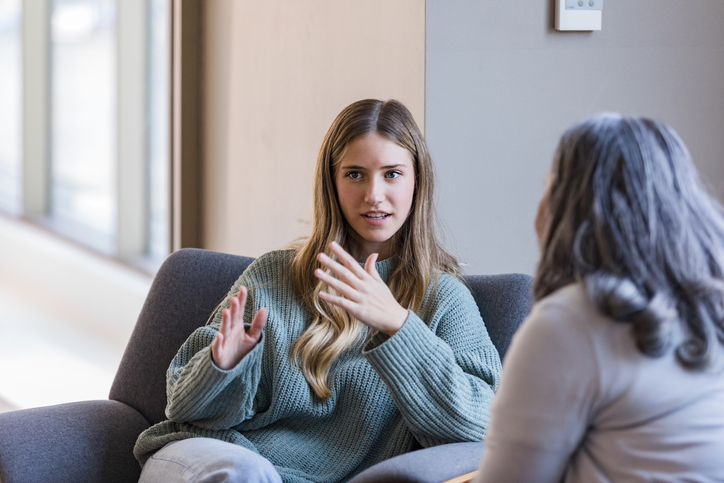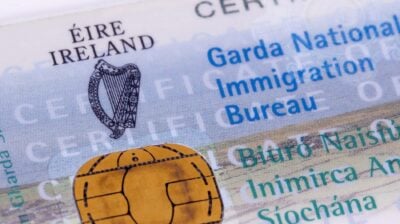Who is my legal guardian while I am under 18?
Learn more about who has the right to your guardianship as a young person


This factsheet is an extract from the publication Know Your Rights: The Rights of Children and Young People published by the Children’s Rights Alliance. It is reproduced here with their kind permission. Know Your Rights is a public information project designed to inform everyone, in plain language, of the rights and entitlements children have in Ireland and where to go when they are not respected.
As a young person in Ireland, you have a right to live with your family if this is would be the best thing for you. Families can come in all different forms, but legally there are certain laws that define who your guardians are.
What is guardianship in Ireland?
Guardianship is the word given to the rights and duties of parents in relation to the upbringing of their children. Your guardians have a right to make all major decisions about your life. This includes decisions like:
- what school you go to
- any medical treatment you receive
- where you live
- applying for passports
- choice of religion (if any)
- decisions about leaving the country
Your guardian is the person who has ‘guardianship rights’ – legal responsibility – for you. This is usually your mother and father but can also be another relative or person.
Who is my guardian?
If your parents were married to each other when you were born, they are automatically your guardians. If your mother was not married when you were born, she is automatically your guardian, but your unmarried father is not automatically considered your guardian even if his name is on your birth certificate. He can become your guardian in a number of ways:
- by marrying your mother
- by making a joint agreement with your mother
- if your parents have lived together for 12 consecutive months after 18 January 2016 including at least three months with you and your mother following your birth
- by applying to a court
If your parents are a female same-sex couple, your biological mother will be your automatic guardian. If your parents are a male same-sex couple, your biological father can seek guardianship. In both cases, your non-biological parent can apply to the court to be made a guardian if:
- they have been married to or living with your biological parent for over three years
- have looked after you for more than two years
If you have a step-parent they can apply to the court to be made a guardian if:
- they have been married to or living with your biological parent for over three years
- have looked after you for more than two years
If you have no parent or guardian or your parent or guardian cannot carry out their role, another adult in your life who has looked after your day-to-day care for a continuous period of more than 12 months can also apply to become a guardian.
If one of my parents enters a relationship, is their new partner automatically my guardian?
No. If your mother or father’s partner is not your biological parent then they do not automatically become your guardian. However, they can become your guardian by applying to the court if:
- they have married your parent
- have been living with your parent for over three years, and
- have looked after your day-to-day care for more than two years
If one of your parents marries their new partner, the new partner can formally adopt you with the consent of your other biological parent (the parent who is not part of the marriage).
Do my relatives have the right to make decisions about me?
Not usually. However, if your parents were unable to look after you because of an illness or if, for example, they died, a relative could apply to the court to become your guardian. They would then have the right to take legal decisions about you and to exercise your rights on your behalf. This often happens when your parents cannot look after you and you are in the care of your relatives or grandparents. Your parents could also nominate someone to take on this role in their will in case they died.
What supports are available for families?
Family support services are available for families and individuals who need help. Life events like birth, death, depression, separation, illness, abuse or financial problems can put stress and strain on family life and relationships. There are family resource centres across the country and other family support services available through Tusla. You can find more information on the Tusla website.
Can I see both of my parents if they do not live together?
If your parents do not live together (this could be if they split up or if they have never lived together) they will decide between them how often you can see each parent and for how long. This is called ‘access’. If they cannot decide, they can get help from a judge in the court. Your grandparents, aunts, uncles, and your sisters and brothers (if they are over 18) can also apply to the court for access, which is the right to spend time with you.
How will a judge make a decision in court?
In making a decision about access, the most important thing the judge must consider is what is the best thing for you.
In deciding what is best for you, there is a number of things they consider including:
- the history of your care
- the benefit to you of having a relationship with both of your parents
- any harm you may have suffered
- your opinions
A judge may also order reports to be completed to help them make a decision. Sometimes a judge may appoint a Guardian ad Litem who can report to the court what would be best for you and what your views are.
Do I have a right to have my views heard?
Yes. You have a right to have your opinion heard when a judge is making a decision about:
- guardianship
- who you live with
- access
Sometimes a judge might decide to talk to you directly. Otherwise the judge might decide to have an expert talk to you who will then write up a report to the court that will include your opinion on what should happen. Your parents will have to pay for the expert to do this work.
It is important to note that while a judge or expert will listen to your views, they may ultimately make a decision that is not in line with your views. This is because your views are only one part of what the judge has to look at when deciding what would be best for you overall. If the judge does not hear your opinion you can get legal advice. You can get free legal advice from the Children’s Rights Alliance or the Free Legal Advice Centre.
Can I be in the court when the judge makes the decision about my care?
If you want to be in the court for your case, you can ask the judge if you can be there for all or part of the case. The judge should allow you to be in the court unless they think it would not be suitable or useful for you. In deciding if it is in your best interests to be there, judges will often look at your age, maturity and understanding of what is happening.
What happens to me if one or both of my parents die?
Having one or both of your parents die is a hard time in your life. If you need to talk or get support, there are many places that can help you. You can talk to Childline, a confidential and free service for children.
Barnardos operates a children’s bereavement helpline service for people looking for information and support on dealing with a child’s bereavement. You can contact them on 01-473 2110 from 10am to 12pm Monday to Thursday.
If one of your parents died and the other parent was your guardian, they would be able to make decisions about your life, for example where you lived and where you went to school.
Your parents can appoint another adult or family member in your life to look after you through their will in the unlikely event that they died. If you have any questions about this, you can get more information from the Children’s Rights Alliance Information Line on 01-902 0494.
At what age can I move out of home?
You can leave home at 16 if your parent or guardian agrees. You can leave without consent when you reach 18 years of age.
Have I a right to know who my biological parents are if I was born using assisted human reproduction?
Sometimes the people who are your parents and looking after you day-to-day are not the same people as your biological parents. This can be for a number of reasons including if you were born using sperm or egg from a donor.
Currently you have no right to know who your biological parents are in this situation. However, there are laws that are due to come into force that will allow you to know who your biological parents are after you turn 18.
What is adoption?
Adoption is a legal process where a child becomes a member of a new family. It creates a permanent legal relationship between the adoptive parents and the child.
In an adoption, the legal relationship between the child and the birth parents no longer exists and the adoptive parents have the same rights and duties as if the child was born into their family.






